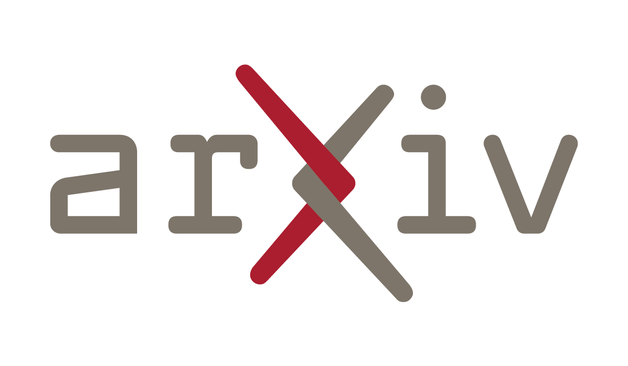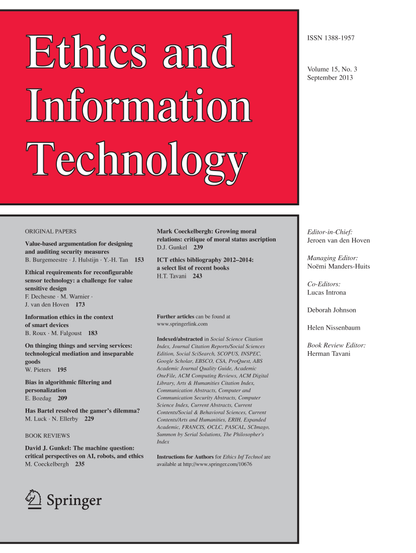"The Bethesda Declaration"
https://www.science.org/content/blog-post/bethesda-declaration
At BlueSky: https://bsky.app/profile/jmcastagnetto.bsky.social
Chemist (PhD, NYU '97), Bioinformatics mangler, Biomedical Informatics dabbler, Data artisan, R scribbler, Metalloprotein DB creator, former PHP/PEAR kludger.
#Rstats #OpenData #Science #BiomedicalInformatics #DataScience #DataVisualization #DataEngineering #PublicHealthInformatics #DataForGood
#dator
| (Forgotten) Personal Site | https://castagnetto.site |
| Github | https://github.com/jmcastagnetto |
| ORCID | https://orcid.org/0000-0002-7188-1605 |
| Threads | https://www.threads.net/@jmcastagnetto |
"The Bethesda Declaration"
https://www.science.org/content/blog-post/bethesda-declaration
Very interesting attack vector for #AI Agents:
"Attacking Multimodal OS Agents with #Malicious Image Patches"

Recent advances in operating system (OS) agents enable vision-language models to interact directly with the graphical user interface of an OS. These multimodal OS agents autonomously perform computer-based tasks in response to a single prompt via application programming interfaces (APIs). Such APIs typically support low-level operations, including mouse clicks, keyboard inputs, and screenshot captures. We introduce a novel attack vector: malicious image patches (MIPs) that have been adversarially perturbed so that, when captured in a screenshot, they cause an OS agent to perform harmful actions by exploiting specific APIs. For instance, MIPs embedded in desktop backgrounds or shared on social media can redirect an agent to a malicious website, enabling further exploitation. These MIPs generalise across different user requests and screen layouts, and remain effective for multiple OS agents. The existence of such attacks highlights critical security vulnerabilities in OS agents, which should be carefully addressed before their widespread adoption.
From #RetractionWatch: "‘Anyone can do this’: Sleuths publish a #toolkit for post-publication review"
#Science #Ethics #ScienceEthics
https://retractionwatch.com/2025/06/04/cosig-sleuths-publish-toolkit-post-publication-review/
My example Ollama + MCP project now colorizes the MCP "debug" output, shows the current context window size at the "You" prompt, and has a new `/reset` command to blow away the context in-session.
Drop #661 (2025-06-05): Context Is Critical
Today's drop reflects on Postman’s MCP "factory" which simplifies MCP server generation, but raises security concerns, as Virus Total reports nearly 8% of deployed servers (not just from Postman's tool) showing vulnerabilities. It also talks about and posits on the "Natural Language Web" (NLWeb) — a protocol for querying websites in natural language, prompting debates about the future of web architecture and the potential…
http://dailydrop.hrbrmstr.dev/2025/06/05/drop-661-2025-06-05-context-is-critical/
Another of my forays into AI ethics is just out! This time the focus is on the ethics (or lack thereof) of Reinforcement Learning Feedback (RLF) techniques aimed at increasing the 'alignment' of LLMs.
The paper is fruit of the joint work of a great team of collaborators, among whom @pettter and @roeldobbe.
https://link.springer.com/article/10.1007/s10676-025-09837-2
1/

This paper critically evaluates the attempts to align Artificial Intelligence (AI) systems, especially Large Language Models (LLMs), with human values and intentions through Reinforcement Learning from Feedback methods, involving either human feedback (RLHF) or AI feedback (RLAIF). Specifically, we show the shortcomings of the broadly pursued alignment goals of honesty, harmlessness, and helpfulness. Through a multidisciplinary sociotechnical critique, we examine both the theoretical underpinnings and practical implementations of RLHF techniques, revealing significant limitations in their approach to capturing the complexities of human ethics, and contributing to AI safety. We highlight tensions inherent in the goals of RLHF, as captured in the HHH principle (helpful, harmless and honest). In addition, we discuss ethically-relevant issues that tend to be neglected in discussions about alignment and RLHF, among which the trade-offs between user-friendliness and deception, flexibility and interpretability, and system safety. We offer an alternative vision for AI safety and ethics which positions RLHF approaches within a broader context of comprehensive design across institutions, processes and technological systems, and suggest the establishment of AI safety as a sociotechnical discipline that is open to the normative and political dimensions of artificial intelligence.
new art series posted. i feel like i made progress in learning how to make good use of this technique, and explored a few ideas for using it in art. maybe i'll refine it further next time i revisit this code
Bonus Drop #84 (2025-05-31): Shop^w Infer Local With Context
Today's Bonus Drop discusses the integration of an MCP server within a local Ollama workflow for improved contextual inference. It emphasizes the importance of model selection, particularly favoring qwen2.5-coder for its performance and context handling. The MCP paradigm enhances modularity and flexibility, streamlining tool calling processes while maintaining conversation state effectively. Includes links to…
http://dailydrop.hrbrmstr.dev/2025/05/31/bonus-drop-84-2025-05-31-shopw-infer-local-with-context/
The {ragnar} #RStats 📦 for doing RAG (retrieval augmented generation) with R has been submitted to CRAN 🎉 https://ragnar.tidyverse.org/news/index.html
In other #GenAI R news: the new {kuzco} #RStats 📦 for computer vision works with local #LLMs in R for classification, recognition, sentiment, text extraction and alt-text generation. https://posit.co/blog/kuzco-computer-vision-with-llms-in-r/
Say hello to kuzco, an LLM-powered computer vision assistant package in #RStats!
Frank Hull's kuzco leverages #Ollama to bring computer vision capabilities into your R workflow.
Learn about classification, image recognition, and sentiment analysis in kuzco: https://posit.co/blog/kuzco-computer-vision-with-llms-in-r/